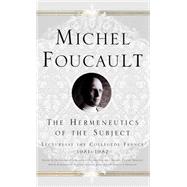
Note: Supplemental materials are not guaranteed with Rental or Used book purchases.
Purchase Benefits
What is included with this book?
| Foreword: | |||||
|
xiii | ||||
| Introduction: | |||||
|
xix | ||||
| Translator's Note | xxxi | ||||
| one 6 JANUARY 1982: FIRST HOUR | 1 | (24) | |||
|
|||||
|
|||||
|
|||||
|
|||||
|
|||||
|
|||||
|
|||||
|
|||||
|
|||||
|
|||||
| two 6 JANUARY 1982: SECOND HOUR | 25 | (1) | |||
|
|||||
|
|||||
|
|||||
|
|||||
|
|||||
|
|||||
|
|||||
| three 13 JANUARY 1982: FIRST HOUR | 25 | (40) | |||
|
|||||
|
|||||
|
|||||
|
|||||
|
|||||
|
|||||
|
|||||
|
|||||
|
|||||
|
|||||
| four 13 JANUARY 1982: SECOND HOUR | 65 | (16) | |||
|
|||||
|
|||||
|
|||||
|
|||||
|
|||||
|
|||||
|
|||||
|
|||||
| five 20 JANUARY 1982: FIRST HOUR | 81 | (26) | |||
|
|||||
|
|||||
|
|||||
|
|||||
|
|||||
|
|||||
| six 20 JANUARY 1982: SECOND HOUR | 107 | (18) | |||
|
|||||
|
|||||
|
|||||
|
|||||
|
|||||
|
|||||
|
|||||
| seven 27 JANUARY 1982: FIRST HOUR | 125 | (24) | |||
|
|||||
|
|||||
|
|||||
|
|||||
|
|||||
|
|||||
|
|||||
| eight 27 JANUARY 1982: SECOND HOUR | 149 | (20) | |||
|
|||||
|
|||||
|
|||||
|
|||||
|
|||||
| nine 3 FEBRUARY 1982: FIRST HOUR | 169 | (18) | |||
|
|||||
|
|||||
|
|||||
|
|||||
|
|||||
|
|||||
|
|||||
| ten 3 FEBRUARY 1982: SECOND HOUR | 187 | (18) | |||
|
|||||
|
|||||
|
|||||
|
|||||
|
|||||
| eleven 10 FEBRUARY 1982: FIRST HOUR | 205 | (24) | |||
|
|||||
|
|||||
|
|||||
|
|||||
|
|||||
|
|||||
|
|||||
|
|||||
|
|||||
| twelve 10 FEBRUARY 1982: SECOND HOUR | 229 | (18) | |||
|
|||||
|
|||||
|
|||||
|
|||||
|
|||||
|
|||||
| thirteen 17 FEBRUARY 1982: FIRST HOUR | 247 | (24) | |||
|
|||||
|
|||||
|
|||||
|
|||||
|
|||||
|
|||||
|
|||||
|
|||||
|
|||||
| fourteen 17 FEBRUARY 1982: SECOND HOUR | 271 | (18) | |||
|
|||||
|
|||||
|
|||||
|
|||||
|
|||||
| fifteen 21 FEBRUARY 1982: FIRST HOUR | 289 | (26) | |||
|
|||||
|
|||||
|
|||||
|
|||||
|
|||||
|
|||||
| sixteen 21 FEBRUARY 1982: SECOND HOUR | 315 | (16) | |||
|
|||||
|
|||||
|
|||||
|
|||||
|
|||||
|
|||||
|
|||||
| seventeen 3 MARCH 1982: FIRST HOUR | 331 | (24) | |||
|
|||||
|
|||||
|
|||||
|
|||||
|
|||||
| eighteen 3 MARCH 1982: SECOND HOUR | 355 | (16) | |||
|
|||||
|
|||||
|
|||||
|
|||||
|
|||||
|
|||||
| nineteen 10 MARCH 1982: FIRST HOUR | 371 | (24) | |||
|
|||||
|
|||||
|
|||||
|
|||||
|
|||||
|
|||||
|
|||||
| twenty 10 MARCH 1982: SECOND HOUR | 395 | (42) | |||
|
|||||
|
|||||
|
|||||
|
|||||
| twenty-one 17 MARCH 1982: FIRST HOUR | |||||
|
|||||
|
|||||
|
|||||
|
|||||
|
|||||
|
|||||
|
|||||
|
|||||
|
|||||
|
|||||
| twenty-two 17 MARCH 1982: SECOND HOUR | 437 | (16) | |||
|
|||||
|
|||||
|
|||||
|
|||||
|
|||||
|
|||||
|
|||||
|
|||||
| twenty-three 21 MARCH 1982: FIRST HOUR | 453 | (24) | |||
|
|||||
|
|||||
|
|||||
|
|||||
|
|||||
|
|||||
|
|||||
|
|||||
|
|||||
| twenty-four 21 MARCH 1982: SECOND HOUR | 477 | (30) | |||
|
|||||
|
|||||
|
|||||
|
|||||
|
491 | (16) | |||
| Course Context: | |||||
|
507 | (44) | |||
| Index of Names | 551 | (6) | |||
| Index of Notions and Concepts | 557 |
The New copy of this book will include any supplemental materials advertised. Please check the title of the book to determine if it should include any access cards, study guides, lab manuals, CDs, etc.
The Used, Rental and eBook copies of this book are not guaranteed to include any supplemental materials. Typically, only the book itself is included. This is true even if the title states it includes any access cards, study guides, lab manuals, CDs, etc.